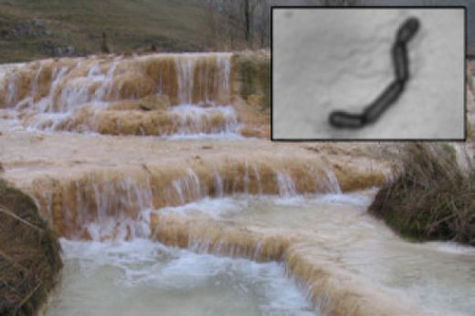Although bacteria with waste-eating properties have been discovered in relatively pristine soils before, this is the first time that microbes that can survive in the very harsh conditions expected in radioactive waste disposal sites have been found.
The disposal of nuclear waste is very challenging, with very large volumes destined for burial deep underground. The largest volume of radioactive waste, termed 'intermediate level', will be encased in concrete prior to disposal into underground vaults, researchers said. When ground waters eventually reach these waste materials, they will react with the cement and become highly alkaline. This change drives a series of chemical reactions, triggering the breakdown of the various 'cellulose' based materials that are present in these complex wastes.
One such product linked to these activities, isosaccharinic acid (ISA), causes much concern as it can react with a wide range of radionuclides - unstable and toxic elements that are formed during the production of nuclear power and make up the radioactive component of nuclear waste. If the ISA binds to radionuclides, such as uranium, then the radionuclides will become far more soluble and more likely to flow out of the underground vaults to surface environments, where they could enter drinking water or the food chain.
However, the researchers' new findings indicate that micro-organisms may prevent this becoming a problem. Working on soil samples from a highly alkaline industrial site in the Peak District in the UK, which is not radioactive but does suffer from severe contamination with highly alkaline lime kiln wastes, they discovered specialist "extremophile" bacteria that thrive under the alkaline conditions expected in cement-based radioactive waste. The organisms are not only superbly adapted to live in the highly alkaline lime wastes, but they can use the ISA as a source of food and energy under conditions that mimic those expected in and around intermediate level radioactive waste disposal sites.
"Nuclear waste will remain buried deep underground for many thousands of years so there is plenty of time for the bacteria to become adapted," said Professor Jonathan Lloyd, from the University of Manchester's School of Earth, Atmospheric and Environmental Sciences, said.
The findings are published in the ISME journal.
Source: Press Trust of India
http://www.sott.net/article/285569-Scientists-discover-nuclear-waste-eating-bacteria

 RSS Feed
RSS Feed